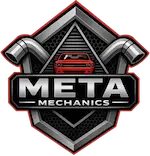Owning a Chevrolet is a prideful experience, but like any vehicle, it requires regular maintenance and occasional repairs to keep it running smoothly. Whether you’re a new Chevrolet owner or a long-time enthusiast, understanding how to tackle common issues and perform routine maintenance can save you time and money in the long run. In this comprehensive guide, we’ll cover everything you need to know about Chevrolet car repair.
Understanding Your Chevrolet
Before diving into repair tips and techniques, it’s essential to have a basic understanding of your Chevrolet’s components and systems. Each model may have specific quirks and features, so referring to your owner’s manual is always a good starting point. Familiarize yourself with the engine layout, transmission type, and any advanced technology integrated into your vehicle.
Routine Maintenance
Regular maintenance is key to preserving the performance and longevity of your Chevrolet. Here are some essential tasks every owner should prioritize:
- Oil Changes: Regular oil changes are crucial for keeping your engine lubricated and functioning correctly. Follow the manufacturer’s recommendations for oil type and change intervals.
- Fluid Checks: Periodically check the levels of essential fluids such as coolant, brake fluid, and power steering fluid. Low levels can indicate leaks or other issues.
- Tire Care: Maintain proper tire pressure and tread depth to ensure optimal traction and safety. Rotate your tires regularly to promote even wear.
- Brake Inspections: Monitor brake pad thickness and rotor condition. Squealing or grinding noises, along with reduced braking performance, may indicate the need for replacement.
- Filter Replacements: Replace air filters, fuel filters, and cabin air filters at recommended intervals to maintain air quality and engine efficiency.
Common Repair Issues
Despite regular maintenance, your Chevrolet may encounter occasional problems that require attention. Here are some common issues and how to address them:
- Electrical Problems: Faulty wiring, dead batteries, and malfunctioning sensors can cause electrical issues. Conduct a thorough inspection of the electrical system, checking for loose connections and damaged components.
- Engine Troubles: Rough idling, stalling, or loss of power may indicate engine problems. Diagnose the issue using a code reader or seek professional assistance for complex repairs.
- Transmission Issues: Transmission fluid leaks, slipping gears, or hesitation during shifting are signs of transmission trouble. Promptly address these issues to prevent further damage to the transmission.
- Suspension and Steering: Worn-out shocks, struts, or ball joints can affect ride comfort and handling. Inspect suspension components regularly and replace any worn parts as needed.
- Exhaust System Concerns: Leaks, rust, or unusual noises from the exhaust system require immediate attention to prevent harmful emissions and potential safety hazards.
Owning a Chevrolet comes with the responsibility of proper maintenance and occasional repairs. By staying proactive and addressing issues promptly, you can enjoy years of reliable performance from your vehicle. Remember to consult your owner’s manual for specific maintenance schedules and guidelines, and don’t hesitate to seek professional help for complex repairs. With diligence and care, your Chevrolet will continue to serve you well for miles to come.



